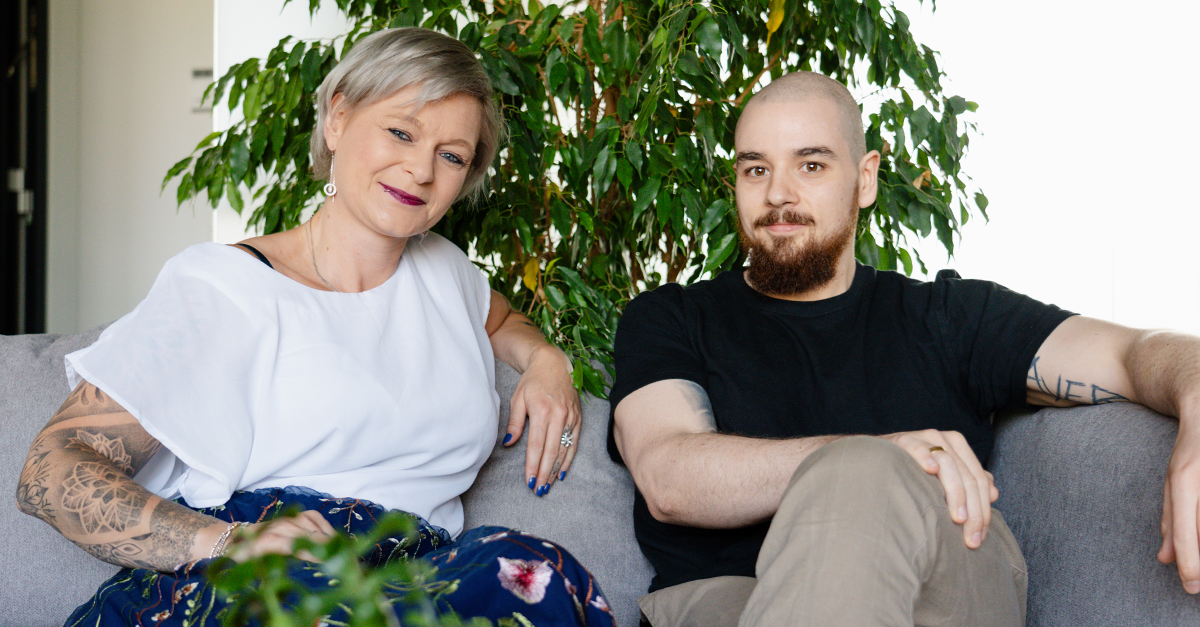Supply Chain Digitization: tasks and insights from Consultant Kathrin

Senior Consultant Kathrin Reimann has been working at SupplyOn in Hallbergmoos near Munich since 2018. She started as a working student and is now a Senior Consultant Supply Chain Digitization, managing customer projects in the area of Supply Chain Collaboration and Transport Management.
What are your tasks as a Consultant Supply Chain Digitization at SupplyOn?
I take care of the implementation of customer projects in various modules of our SupplyOn platform. The focus of my tasks is on implementing customer requirements in the Transport Management Systems (TMS) module and our Supply Chain Collaboration Platform (SCC). I support customers from the conception of the future process to the test setup and go-live.
My tasks also include training on individual SupplyOn applications. Both for customer key users and for new employees. I train them in how to set up and maintain our systems and explain what configuration options are available.
I mainly carry out my tasks from my home office. One exception was my trip to Shanghai in September this year. I spent two weeks there supporting and training our Chinese colleagues on an ongoing local project in China. I really enjoyed the international exchange.
You can find out more about the tasks and role of the Consultant Supply Chain Digitization at SupplyOn in Munich on our Consulting careers page.
What does a typical working day or week look like as a Consultant Supply Chain Digitization at SupplyOn?
We usually start on Monday morning with a team overview: We have a quick chat on our weekend activities and then, in the second part of the meeting, we discuss who is taking on which tasks this week and which topics are on the agenda.
The day is then divided into several internal and external appointments (mainly via MS Teams, occasionally on site), as well as meeting-free working hours.
In the customer meetings, current requirements are coordinated, challenges are clarified and the project status and next steps are discussed.
The internal meetings are used, for example, to align with product development. As consultants, we provide input here so that the product developers receive first-hand feedback. Both from us as application professionals and directly from the customer.
In some cases, we also support our sales team with new customer demos or detailed questions.
In the meeting-free time, we configure systems such as our SupplyOn Portal or the Transport Management System and prepare workshops or customer scenarios.

How many customer projects are you currently working on and what specific challenges are you solving?
As a Senior Consultant Supply Chain Digitization, I am currently working on six customer projects for four different customers. The number of customer projects varies greatly for us and depends on various factors. For example, it depends on the customer’s project phase. But the preferences within the team are also taken into account when assigning projects.
One challenge that I am currently tackling together with some customers is the creation of transparency regarding the daily location of delivery goods and delivery materials for production. For example, these customers do not yet know where materials and goods are located after pick-up and whether delayed transport may have an impact on production. Any transport status is missing. The TMS module, for example, could provide more visibility here. Every transport status is recorded and displayed transparently for the customer. The customer has clarity about where the goods are moving and can plan more efficiently.
Another challenge my customers face is providing evidence and traceability as to whether and where potential damage has occurred during the transport process. To this end, we use a mobile app solution to offer transport service providers the opportunity to report damage directly upon collection of the goods.
The results from the mobile app are systematically mapped on our platform and can be enriched with photos, status updates, etc. to provide better evidence. As a result, the customer receives a systematic recording and logging of damage to delivered goods and materials and can better understand complaints from transport service providers and take countermeasures earlier if necessary.

How does your role as a Consultant Supply Chain Digitization influence your customers’ business development?
In the examples mentioned above, the solution to my customers’ challenges helps them to be able to produce more efficiently and transparently and thus save costs.
At the same time, some customers, with whom I usually have a close relationship of trust, involve me in new topics at an early stage. They ask me for advice on how certain problems can be solved using our system landscape.
What was your career like before you joined SupplyOn and how did you become interested in the supply chain industry?
I completed my Bachelor’s degree in Business Administration at LMU Munich with a minor in Computer Science and my Master’s degree in Management and Technology at TU Munich. During my studies, I did an internship semester and repeatedly took on working student jobs, which gave me an insight into different areas of the company.
After working as a student trainee in the area of supplier evaluation, I specifically looked around for working student digitization jobs in this area in Munich and came across SupplyOn.
What particularly appealed to me about SupplyOn in consulting was not only the digitization of processes but also the area of process analysis and process improvement.

How has your career as a Consultant Supply Chain Digitization at SupplyOn developed?
I started in 2018 as a working student in the consulting department and was already involved in preparing customer workshops and analysing data. In some cases, I was already allowed to take on junior tasks.
The following year, I wrote my master’s thesis in the Invoicing department at SupplyOn on the topic of “Influences of electronic invoicing on key financial figures”.
After completing my studies, I applied for a junior position and started at SupplyOn in November 2019 in the Consulting SCC/TMS team with Martin Zwingmann. Here I was able to work directly on a major project, a transport management system migration for our customer Schindler.
After successfully completing the project, I was promoted to Consultant Supply Chain Digitisation in 2021.
I gradually took on more responsibility: I managed projects, initially sub-projects, then several customer projects in full and in parallel.
I also supervised employees, such as working students in the team, and trained new colleagues.
At the beginning of 2023, I was promoted to Senior Consultant Supply Chain Digitization.
How do you collaborate with other teams and departments within SupplyOn?
We work very closely with our corresponding team, Product Development Transport Management System, before and during product development and specify and test features, for example.
We occasionally exchange ideas with other consulting teams from the Finance and Supply Chain Collaboration departments.
What always helps me personally in the initial phase of complex large-scale projects are brainstorming sessions with process flow models (if already known) on the whiteboard or via Microsoft Visio. I welcome the fact that these often take place in the office, where we can all see each other in person.
I would describe the collaboration as very trusting. The working atmosphere within Consulting is generally open and collegial. There is no one you can’t ask for advice and you help each other.

What excites you most about your position as Consultant Supply Chain?
We still have a varied field of activity. It never gets boring, which is also very important to me personally. I always feel comfortable at SupplyOn and am challenged and encouraged.
And my interest in digitization and process optimization has remained the same even after five years at SupplyOn. I am always delighted when we implement smoothly running end-to-end processes for customer projects that ideally no longer require 1000 manual interventions. I particularly like it when customer projects, which we have usually worked towards for months or years, are finally realized and take flight.
What opportunities for further training and development does SupplyOn offer to consultants in the area of supply chain digitization?
In Consulting, there are internationally recognized qualifications in which we undergo further training. In the area of project management, for example, PRINCE2 or a training course on “Winning Complex Sales”.
Individual requests for further training can be addressed during the annual feedback meetings, in which personal requests for further education and training can be taken into account and agreed.
So far, I have been invited to various presentation training sessions, for example on designing slides for presentations to a steering committee. In the future, I am looking forward to moderation training and/or conflict management training.
SupplyOn also supports self-organized learning via digital learning platforms such as Udemy and LinkedIn Learning. Learn more about this in the interview with my colleague Angila.
Where will your career take you in the future? Do you already have plans or wishes?
My greatest wish is to never be bored.
So far, my career at SupplyOn has developed by successively taking on new responsibilities.
To keep things exciting, I can imagine taking on more different projects in the future, for example building up expertise in other SupplyOn modules or continuing to support the team in the USA/China. I am also open to a management role in a smaller (sub-)team.
How do you ensure a balance between work and private life?
I find our flexible working time models very positive. From a doctor’s appointment, which can only be attended at certain times, to other private commitments, I can take advantage of these when customer appointments and the workload allow and organise my working hours as I wish.
I also think mobile working abroad is a very cool benefit at SupplyOn, which I like to take advantage of. I spent a few days with a colleague in Thessaloniki this summer, for example, where we worked together remotely and could relax together in the city or on the beach after work.
Otherwise, the workload itself depends on the project cycle. For example, there are definitely “hot” phases in the day-to-day work of a Consultant Supply Chain Digitization when projects are completed. The workload is then higher. However, I then try to compensate for this in quieter project phases.

I generally work with appointment blockers. From 4 p.m. onwards, I generally have a meeting-free period in which I continue to work on important topics. During lunchtime, I schedule a fixed break in my diary every day and consciously arrange to meet with the team in the office twice a week to exchange ideas.
What skills are crucial to be successful in the role of a Consultant Supply Chain Digitization?
It is helpful to have a certain intrinsic motivation and the ability to think processes through to the end. Curiosity and a willingness to familiarize yourself with new systems are also a benefit. An affinity for IT and a basic technical understanding are ideal. In my experience, the relevant expertise in transport management systems or supply chain collaboration is helpful, but not crucial, as this can be learnt on the job as you go along.
What advice can you give future SupplyOn applicants if they want to apply for the position of Consultant Supply Chain Digitization?
Personally, getting a taste of the company as a working student really helped me to form an opinion and sound out my interests. So my tip is: just try it out and get to know SupplyOn and the subject area!
Has Kathrin’s experience report as a Consultant Supply Chain Digitization piqued your interest?
Apply now as



